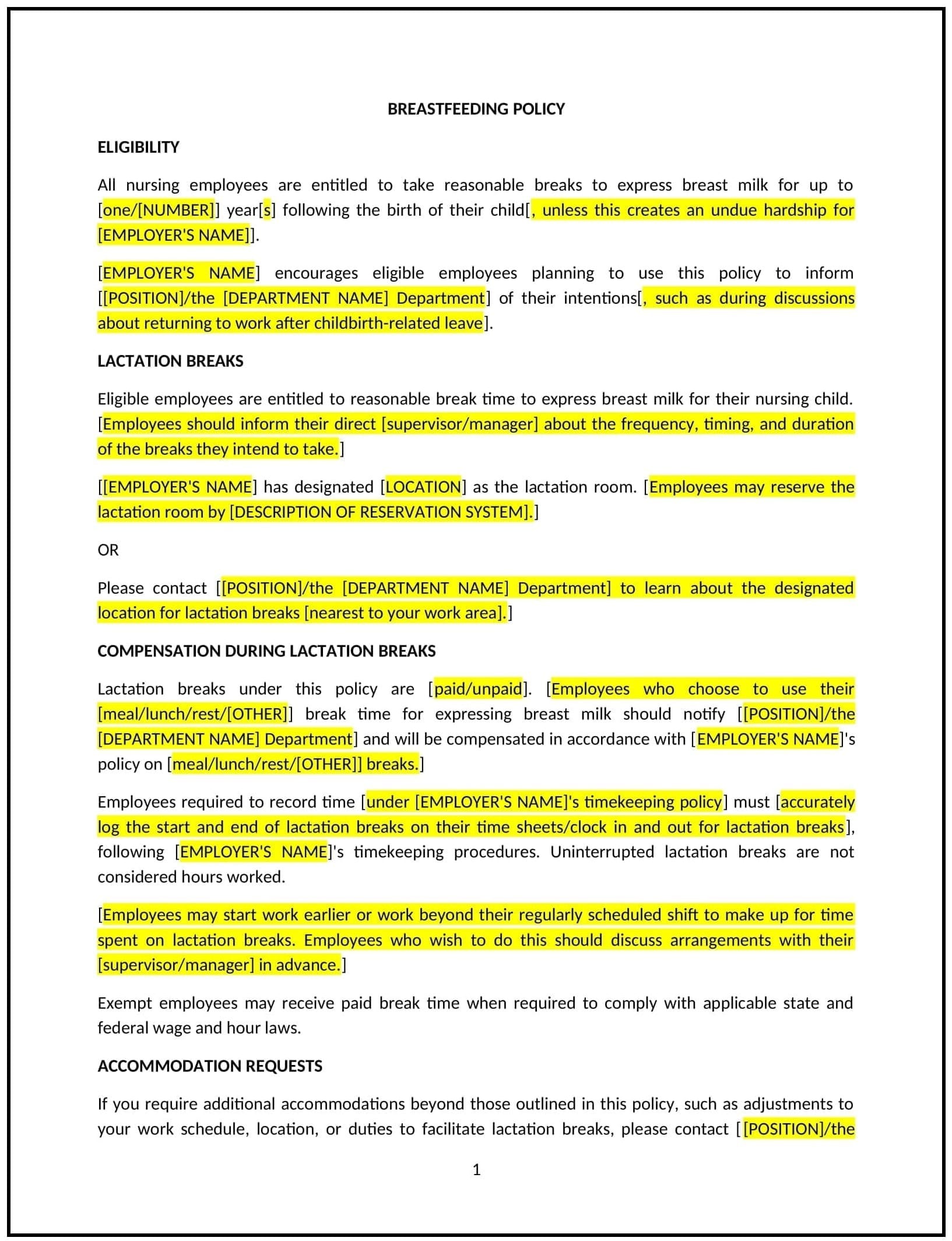Breastfeeding break policy (Tennessee): Free template
Got contracts to review? While you're here for policies, let Cobrief make contract review effortless—start your free review now.

Customize this template for free
Breastfeeding break policy (Tennessee)
This breastfeeding break policy is designed to help Tennessee businesses create guidelines for supporting nursing mothers in the workplace. It outlines procedures for providing break time and private spaces for expressing milk.
By adopting this policy, businesses can comply with federal and state laws, support working mothers, and promote a family-friendly workplace.
How to use this breastfeeding break policy (Tennessee)
- Define break time: Clarify the amount of break time provided, such as reasonable periods for expressing milk.
- Specify private spaces: Explain the requirements for private, non-bathroom spaces for nursing mothers.
- Set request procedures: Provide steps for employees to request breastfeeding breaks and access to private spaces.
- Address paid vs. unpaid breaks: Explain whether breastfeeding breaks are paid or unpaid, depending on the business’s policies.
- Train managers: Educate supervisors on handling breastfeeding break requests and maintaining workflow.
- Review and update: Assess the policy annually to ensure it aligns with evolving business needs and legal requirements.
Benefits of using this breastfeeding break policy (Tennessee)
This policy offers several advantages for Tennessee businesses:
- Supports working mothers: Demonstrates a commitment to helping nursing mothers balance work and family responsibilities.
- Aligns with legal requirements: Helps businesses comply with federal laws, such as the Fair Labor Standards Act (FLSA), and Tennessee state laws.
- Enhances workplace culture: Builds trust and loyalty by showing employees that their needs are valued.
- Reduces turnover: Encourages employee retention by providing support for working mothers.
- Promotes inclusivity: Creates a family-friendly workplace that attracts diverse talent.
Tips for using this breastfeeding break policy (Tennessee)
- Communicate the policy: Share the policy with employees and include it in the employee handbook.
- Provide training: Educate managers on handling breastfeeding break requests and maintaining workflow.
- Monitor compliance: Regularly review break requests to ensure adherence to the policy.
- Address issues promptly: Take corrective action if breastfeeding break requests are mishandled or denied improperly.
- Update regularly: Assess the policy annually to ensure it aligns with evolving business needs and legal requirements.